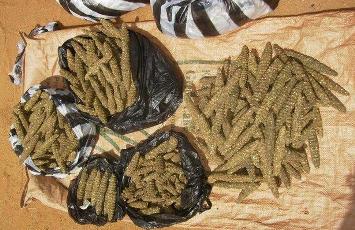Sudan worried over “insane” hikes in use of illicit drugs
September 13, 2012 (KHARTOUM) – Anti-narcotics authorities in Sudan rang the alarm bell on Tuesday over what an official described as the “insane” increases in the domestic rate of illicit drugs intake especially among young segments of the population.

The official said that Khartoum State, where more than 5 million of the country’s estimated population of 25 million lives, consumes more than 65 percent of the country’s production.
Sinada, who described the increases as “insane”, said that their data shows that the majority of users are young adults and students. He added that the figures are considered a dangerous indication, calling for comprehensive review of the situation.
Cannabis production and consumption is strictly illegal in Sudan. The country’s struggle with the drug was highlighted in the United Nations’ (UN) 2011 World Drug Report which ranks Sudan as number 12 worldwide in terms of seized amounts of cannabis, with 17,255 kg seized in 2009.
Sinada said that the amount of seized cannibals rose from 6 tons in 2011 to 36 tons in 2012. He also revealed increases in the activities of drugs smuggling through air and sea port.
The official explained some of the limitations the authorities are facing in the war on drugs. He singled out Al-Radom area which lies on the borders of South Darfur State with Central African Republic as the leading production area for Bango.
In Al-Radom, he explained, Bango is cultivated in a land space of 34km which makes it difficult to track. He also said that the precarious security situation in Darfur states is making the execution of anti-drugs campaign very expensive.
Most of Sudan’s Bango production comes from the country’s peripheral areas especially the western region of Darfur where insecurity is high due to an armed conflict between the government and rebel groups.
(ST)
